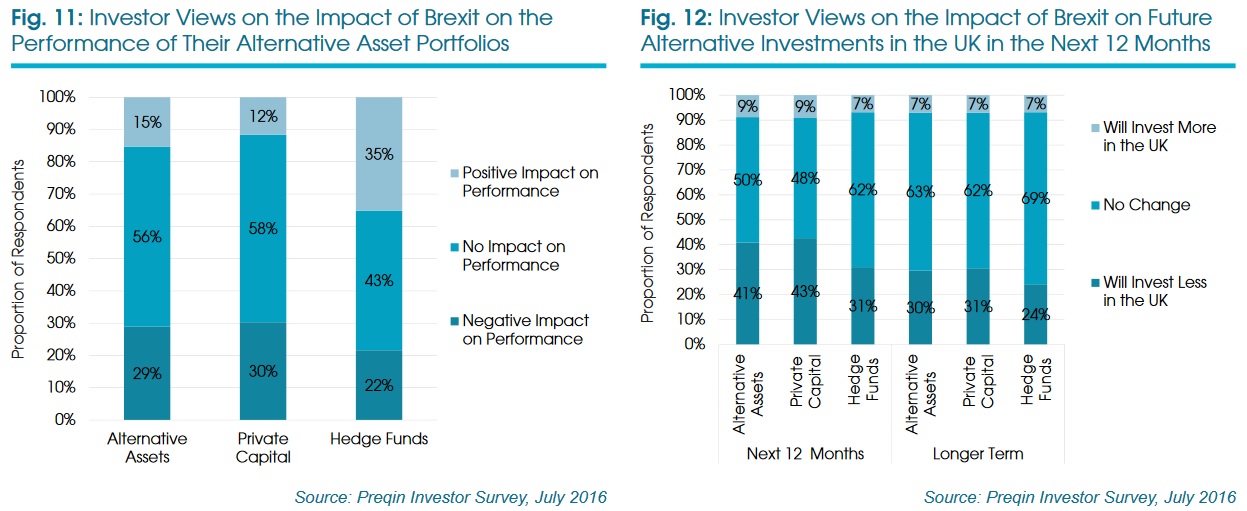Alternatives Investors Brace for Brexit Impact
The UK’s vote to exit the European Union has already prompted global investors to reconsider their allocations to the country’s private markets, according to a survey.
More than 40% of institutional investors surveyed byPreqin planned to invest less in the UK in the next 12 months. Private markets allocations were more likely to suffer than hedge funds, the data firm reported.
“In the longer term, more alternative investors are seeking to reduce exposure to UK investments than are seeking to increase exposure,” Preqin’s report stated. “However, the majority believe there will be no change to their UK investment activity over the longer term.”
Almost a quarter (24%) of asset owners said they would invest with fewer UK-headquartered fund managers “in both the short and long term,” the report added. No investors said they would increase their allocation to UK-domiciled managers.
Nearly two-thirds (63%) of all hedge funds operating in Europe are based in London, according to the data firm, accounting for $427 billion of assets. Private markets managers in the UK manage $490 billion, compared with $333 billion run by continental managers.
Most investors felt there would be no performance impact to their alternatives portfolios in the next 12 months, although more than a quarter said the impact would be negative.
 Hedge fund managers were
more positive about their performance prospects in the wake of the referendum
result, Preqin also found. Almost a quarter (23%) of hedge fund managers the
firm surveyed believed the outcome would be positive for their investments in
the long term. Only 9% of managers of unlisted assets concurred with this view.
Hedge fund managers were
more positive about their performance prospects in the wake of the referendum
result, Preqin also found. Almost a quarter (23%) of hedge fund managers the
firm surveyed believed the outcome would be positive for their investments in
the long term. Only 9% of managers of unlisted assets concurred with this view.
Meanwhile, the immediate performance impact is all too apparent for many pension funds. The aggregate funded status of pensions linked to S&P 1500 companies fell from 79% to 76% during June, according to Mercer, primarily due to the impact of Brexit on markets and discount rates during the last few days of the month.
This marked a $70 billion increase in the aggregate shortfall of these plans during the month, Mercer said. Since the end of 2015, this shortfall grew by $164 billion to hit $568 billion at the end of June.
“In the two trading days following the Brexit vote, we saw funded status fall a full four percentage points before a partial recovery before month-end,” said Matt McDaniel, partner at Mercer. He argued that “plan sponsors need to monitor funded status regularly, ideally on a daily basis.”
Related: What Brexit Means for LDI & Waking Up to a Different Europe
